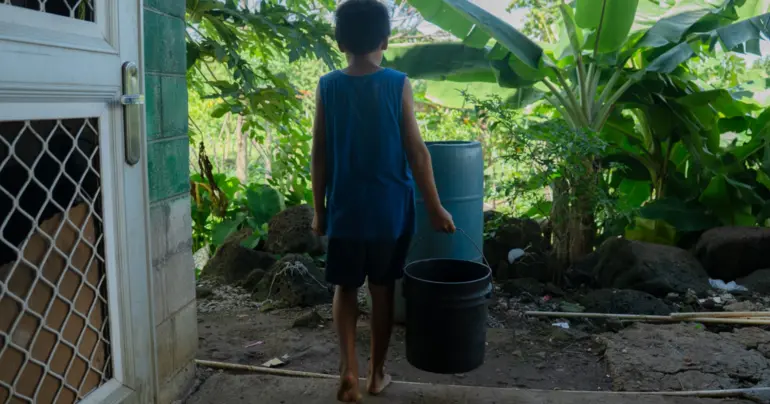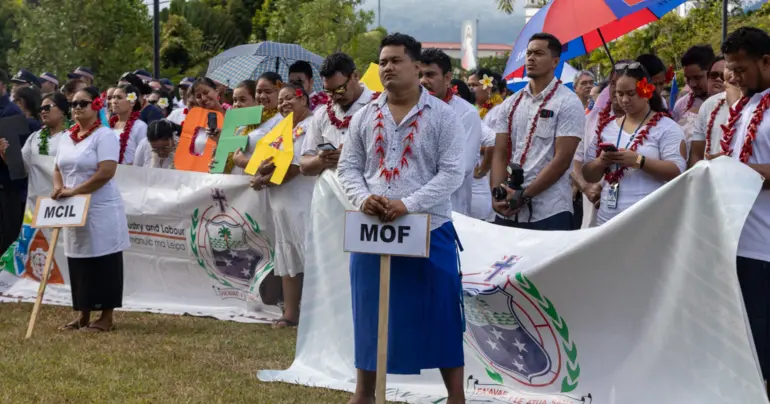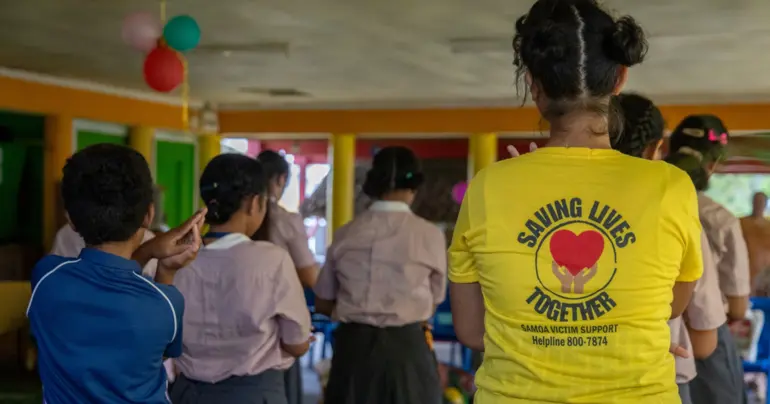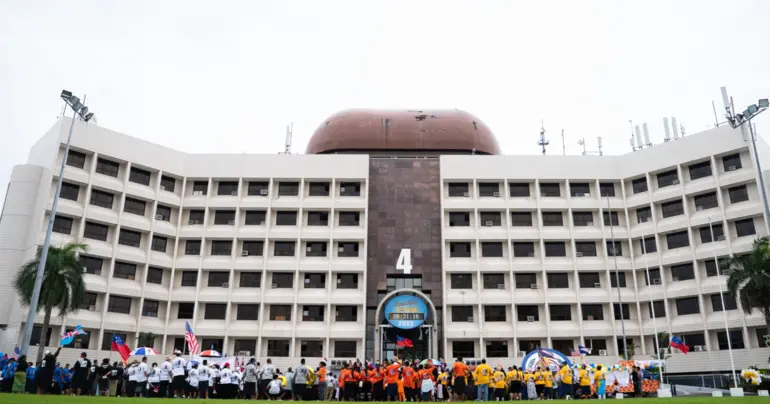Australia's frayed family ties
 By The Editorial Board
•
23 June 2021, 10:30PM
By The Editorial Board
•
23 June 2021, 10:30PM
Australia has long been a country awkwardly in search of a place in the world and its national identity on the world stage.
The country is famous for its unique wildlife and animals such as kangaroos and koalas that were the result of millions of years of extensive isolation from others and a lack of interaction with other animals.
That is an appropriate metaphor for its modern foreign policy, which has been defined by unconvincing attempts to fit in as a member of various regions, most recently as a member of the “Pacific family”.
Like an awkward, pimply teenager, Australia continues to be beset by a foreign policy identity crisis.
In the early 1990s under then-Prime Minister Paul Keating it became preoccupied with the notion that Australia should become focused on its place in Asia, perhaps in a more figurative than literal sense for anyone passingly familiar with a map.
It showed particular interest to its neighbours to the country’s immediate north in Southeast Asia.
But Mr. Keating lamented the country’s status as the "odd man out" in the region and the challenges it had with forming deeper alliances with the continent.
Quite separate to this were the country’s economic and investment agenda; Asia has become a hugely lucrative market for Australian commodities and responsible for the country’s long-running economic success.
Indeed, it didn’t have any other choice but to integrate with the fast-growing economic powerhouses that were going to define the future of the region, and the world.
But finding its feet and identity did not come so easily.
The country made attempts to shoehorn its way in. It was Australia that was largely behind the establishment of the Asia-Pacific Economic Cooperation forum.
Its founding members were: Brunei Darussalam; Canada; Indonesia; Japan; Korea; Malaysia; New Zealand; the Philippines; Singapore; Thailand; and the United States.
That is a geographically confused assortment of countries but also one from which any Pacific island state was conspicuously absent, raising the question about why ‘Pacific’ was even in the new forum’s name.
Spats and moments of awkwardness during this period of attempts to increase its engagement hasn’t stopped the country from economic engagement with the region. Its economy has benefited hugely from increasing trade with surging Asian economies which represent the destination for the majority of its exports.
But its international identity continues to be confused.
The root of that problem is that Australia, though on the other side of the world, is a monarchy deeply rooted in conservative British values.
These values have regularly thrown up problems for the country and its diplomatic relations as it changes Governments, each with their new emphasis on political values.
During the early 2000s Australia placed a primary emphasis on its relations with other English speaking nations around the world.
Mr Keating’s successor, John Howard, famously refused to sign a pact of nonaggression and friendship circulated by the Association of South East Asian Nations.
During this time Australia famously became the United States’ “deputy sheriff” in the region and followed America into Afghanistan and joined the “coalition of the willing” who went adventuring into Iraq with utterly disastrous results.
(Indeed, Australia is the only country to have fought alongside America in every war during the 20th Century.)
Then the country had a change of Government and of heart.
Its Government spoke of the “Asian Century”: a new era defined by greater investments in Asia, more collaboration with its businesses and greater cultural, social and political integration.
Now Australia is, to borrow from the national slang, styling itself as a fair dinkum member of the Pacific family.
But unlike its neighbour New Zealand which has long associations within the region and cultural ties that bind it to the south Pacific, Australia’s battle has been uphill.
A cynic might point out that Australia’s increasing rhetoric about the Pacific has coincided with China’s growing influence in the region and as billions of dollars in foreign aid sloshes into Governments’ coffers in a soft power race between Beijing and Washington.
But let us give our Australian friends the benefit of the doubt.
Though it appears to be a new foreign policy preoccupation, Australia’s integration into the Pacific has already been beset by problems. These have mainly been caused by the perception that it does not take the issue of climate change seriously in a region where the matter is little less than life or death.
As Greenpeace Australia’s Pacific spokesman, Auimatagi Joseph Moeono-Kolio, told the Samoa Observer yesterday Australia has been fond of making eye-catching statements about its environmental commitments.
But until it stops mining and burning coal, oil and gas, that, he said, would amount to essentially nothing:
“Anything less is rolling the dice with the lives and livelihoods of millions of Australians and Pacific peoples. Pacific nations have stood up and taken ambitious steps to curb emissions - Australia must play its part,” Auimatagi said.
And what has already proven to be a policy predicament that has chequered Australia’s relationship with the region is about to get harder.
In 2019 after its refusal to shut down coal-fired power plants and commit to achieving substantial action on climate change loomed unpleasantly over the Pacific Islands Forum, the country’s then-Deputy Prime Minister made what some condemned as a racist remark.
“I also get a little bit annoyed when we have people in those sorts of countries pointing the finger at Australia and say we should be shutting down all our resources sector so that, you know, they will continue to survive," Michael McCormack said.
“They will continue to survive, there’s no question they’ll continue to survive and they’ll continue to survive on large aid assistance from Australia.
“They’ll continue to survive because many of their workers come here and pick our fruit, pick our fruit grown with hard Australian enterprise and endeavour.”
But around the time that Emily Luck was presenting her credentials to the Head of State to become Australia's newest High Commissioner to Samoa on Tuesday, Mr. McCormack had been forcibly replaced as the country’s deputy leader.
We hope that her surname is an omen because Australia’s attempts to present a convincing case that it cares about its Pacific family just become significantly more difficult.
His successor, Barnaby Joyce, challenged him in a political coup because, he argued, Mr McCormack was too weak on climate change; too ready to agree to cut carbon emissions at the expense of Australia’s regional economies.
Mr. Joyce will be engaged in negotiations with Australia’s Prime Minister, Scott Morrison, the leader of his coalition partner in Government. At the top of the agenda will be his displeasure with Australia’s commitment to achieving a “net zero” carbon emissions policy by 2050. He will be demanding that Australia takes an even slower path to reducing carbon emissions.
For a country that has already found itself shunned for its stance on climate change, its claim to being a member of a united Pacific family is about to become less convincing.
 By The Editorial Board
•
23 June 2021, 10:30PM
By The Editorial Board
•
23 June 2021, 10:30PM










